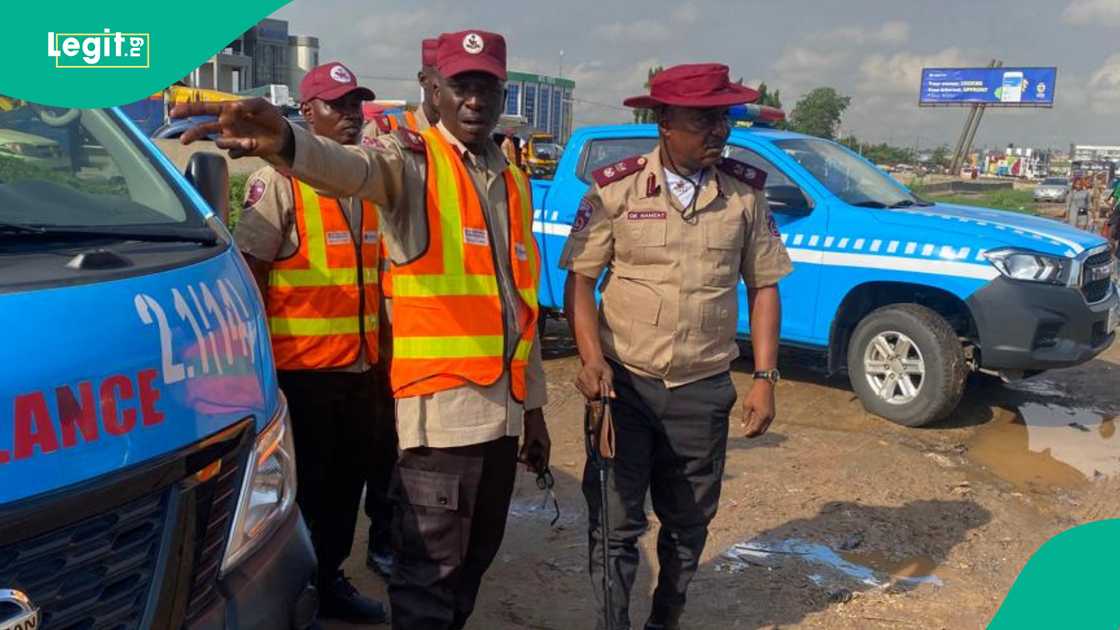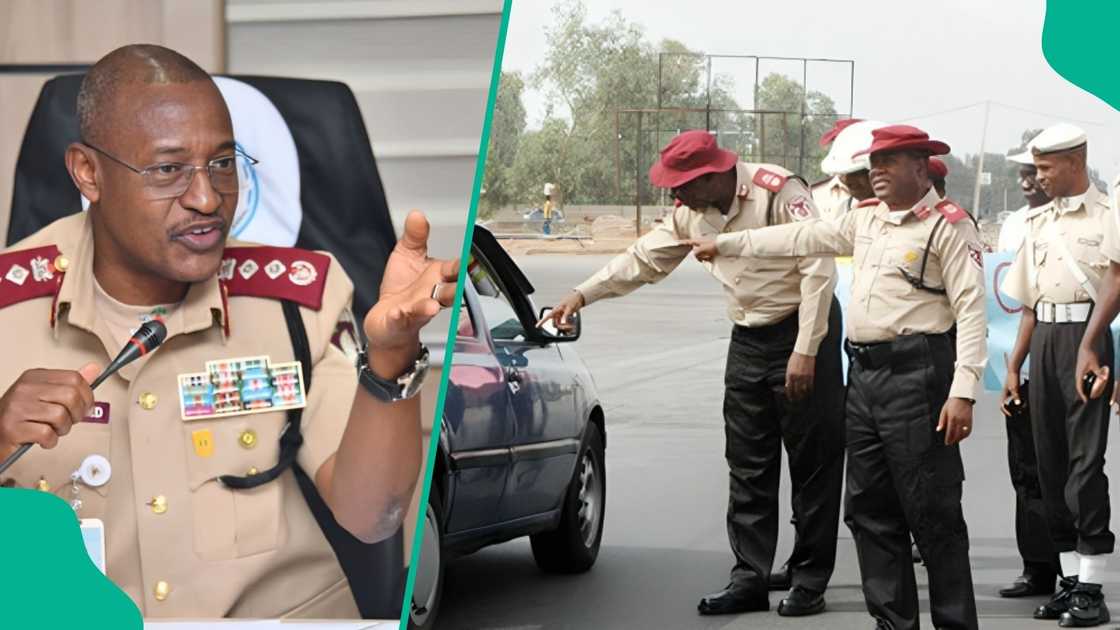No More Delays: FRSC Launches Contactless Driver’s Licence System for Instant Issuance Nationwide
- The Federal Road Safety Corps (FRSC) is piloting a new contactless drivers licence to tackle backlogs
- According to reports, the corps is launching contactless biometric in its drive to digitise Nigeria’s motor vehicle administration
- Also, the FRSC has upgraded its production facilities to print 15,000 licences daily, with plans to double that capacity
Pascal Oparada, a reporter for Legit.ng, has over ten years of experience covering technology, energy, stocks, investment, and the economy.
The Federal Road Safety Corps (FRSC) has announced the launch of a contactless biometric driver’s licence system—a major step towards digitalising Nigeria’s motor vehicle administration and eliminating long delays in licence processing.
The new initiative, unveiled during the Corps’ 2025 Ember Months Road Safety Campaign in Abuja, marks a significant reform in the nation’s transport system.

Source: Twitter
Instant licences, no more temporary documents
The campaign, themed “Tech Responsibility for Your Safety: Stop Distracted Driving,” targets risky driving habits that often spike road crashes between December and January.
Corps Marshal Shehu Mohammed said the contactless system would enable on-the-spot printing of driver’s licences and remove the need for temporary documents or prolonged waiting periods.
“Once you reach the point of capture, you get captured and get your driver’s licence instantly. There will be no more temporary licences or long delays,” he said.
According to Mohammed, the FRSC has upgraded its production facilities to print 15,000 licences daily, with plans to double that capacity and clear existing backlogs before November 2025.
A report by Punch said Mohammaed emphasised that the contactless biometric capture—based on advanced fingerprint technology—allows for non-physical scanning, ensuring faster and more hygienic data collection.
FRSC moves to achieve digital one-stop system
Mohammed explained that the system was developed in consultation with stakeholders, including state governments, since driver licensing falls under a concurrent legislative list.
The upgraded process will integrate the operations of driving schools, the Vehicle Inspection Office (VIO), and certification agencies, creating a unified and automated licensing platform.

Read also
Retired oil workers hail NUPRC’s bold reforms, $18bn investments under Komolafe’s leadership
“It is no longer about placing fingers on scanners. This system reads fingerprints from a short distance and instantly syncs with the National Identification Number (NIN) database for accurate verification,” the Corps Marshal noted.
He described the development as the beginning of a fully digital one-stop shop for licence processing in Nigeria.
FRSC: Clearing the backlog, nationwide rollout underway
During a media tour of the FRSC’s Driver’s Licence Print Farm in Abuja, Deputy Corps Marshal for Motor Vehicle Administration, Aliyu Datsama, confirmed that the contactless system is already operational and will be rolled out nationwide, including Lagos.
Datsama disclosed that the Corps had been battling a backlog of over 800,000 unprocessed licences, which has now been reduced by half.
“We’re now producing 40,000 licences daily and working round the clock to clear the remaining backlog within weeks,” he said.
He urged Nigerians who had completed their biometric captures to collect their ready licences, noting that over 206,000 remain unclaimed across different states.
FRSC: A new dawn in driver licensing
With the contactless biometric driver’s licence, the FRSC said Nigeria is entering a new era of efficiency, transparency, and digital inclusion in road safety administration.

Read also
‘No more lost recharges’: Consumer group applauds NCC, CBN’s new framework to protect telecom users
The corps hopes that the innovation will not only speed up licensing but also enhance data integrity, identity verification, and public trust in government digital services.

Source: Twitter
As the festive season approaches, the FRSC reiterated its message: responsible driving, road discipline, and technological innovation are key to safer roads for all Nigerians.
How to evade FRSC checks
Meanwhile, the FRSC has released the list of items Nigerian motorists must have to avoid sanctions.
The Federal Road Safety Commission (FRSC) is empowered by law to carry out routine checks on all vehicles plying major routes in Nigeria.
Section 19 of the FRSC (Establishment) Act 2007 empowers the Commission to stop vehicles and carry out checks to ensure they comply with requirements laid down by the law.
12 major documents/items FRSC check
Legit.ng earlier reported that the FRSC is the approved government agency with statutory responsibilities for road safety administration in Nigeria.
Founded in 1988 by the military government of General Ibrahim Babangida, the FRSC operates in all Nigerian states as well as the Federal Capital Territory, Abuja and it is the leading agency in Nigeria on road safety administration and management.

Read also
"Bring your tankers now”: Dangote challenges marketers, says 310m litres of petrol Ready for loading
Although most states in Nigeria have gone ahead to establish their own traffic management agencies, the FRSC is mandated to ensure the safety of road users, especially on federal roads.
Proofreading by James Ojo, copy editor at Legit.ng.
Source: Legit.ng



